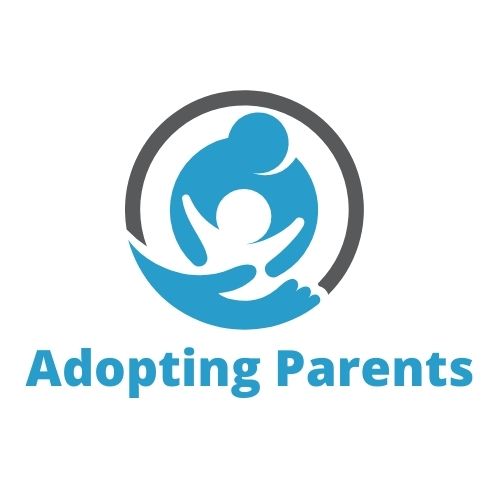Adoption is a profound and life-altering experience, both for the children who are adopted and for the adoptive parents. While it can be a joyous and transformative journey, it also comes with its unique set of challenges, particularly in the realm of mental health. The psychological impact of adoption is a crucial aspect of the adoption journey, and it’s essential to understand and address the emotional and mental well-being of all parties involved. In this article, we will explore the various ways in which adoption can impact mental health and discuss strategies for addressing and supporting mental health needs in the adoption process.
The Complexity of Adoption
Adoption is a multifaceted process, and its impact on mental health can vary greatly depending on individual circumstances. Here are some key aspects of adoption that can affect mental health:
1. Birth Parents’ Perspective
For birth parents, the decision to place a child for adoption can be emotionally challenging. Feelings of grief, loss, guilt, and shame are not uncommon. The psychological impact of this decision can persist long after the adoption is finalized. Birth parents may experience ongoing grief and emotional struggles related to their choice.
2. Adoptive Parents’ Perspective
Adoptive parents often experience a unique set of emotions and challenges. While they are excited and eager to welcome a child into their family, they may also grapple with feelings of insecurity, anxiety, and a desire to bond with their new child. Additionally, adoptive parents may face external scrutiny and questions from others about their family dynamic, which can add to their emotional burden.
3. Adoptees’ Perspective
For adoptees, the psychological impact of adoption is an ongoing journey. They may grapple with questions of identity, belonging, and a sense of loss regarding their birth family. These emotions can be especially pronounced during significant life events, such as adolescence, when identity development is a central focus.
Addressing the Psychological Impact of Adoption
Recognizing and addressing the psychological impact of adoption is crucial for the well-being of all involved. Here are some strategies for addressing these challenges:
1. Pre-Adoption Counseling and Education
Pre-adoptive counseling and education, along with mental health coaching, can help prospective adoptive parents prepare for the emotional aspects of adoption. Understanding the potential challenges and emotional highs and lows can better equip them for the journey ahead. Mental health coaching provides them with valuable tools and strategies to navigate the psychological impact of adoption effectively.
2. Open Communication
Healthy and open communication within the adoptive family is vital. Encouraging children to express their feelings, questions, and concerns is essential for their emotional well-being. This communication should be ongoing and adapted to the child’s developmental stage.
3. Counseling and Therapy
Counseling and therapy services can provide valuable support for all members of the adoption triad: birth parents, adoptive parents, and adoptees. Therapy can help individuals process their emotions, navigate identity concerns, and develop coping strategies.
4. Support Groups
Joining adoptive parent or adoptee support groups can create a sense of community and reduce feelings of isolation. Sharing experiences with others who have gone through similar journeys can be immensely comforting and validating.
5. Addressing Identity Issues
Identity issues are a common concern for adoptees. Encouraging adoptees to explore their heritage and cultural identity can help them build a strong sense of self. Cultural resources, mentorship, and connections with birth culture can be valuable in this regard.
6. Acknowledging Grief and Loss
Grief is a natural response to the adoption experience, both for birth parents and adoptees. Acknowledging and working through this grief is essential for mental health. Grief counseling or support groups specifically focused on adoption-related loss can be beneficial.
7. Seeking Professional Help
In cases where mental health concerns arise, seeking professional help is paramount. Trained therapists or counselors with expertise in adoption-related issues can provide specialized support.
8. Adoption-Sensitive Schools and Communities
Educational institutions and communities should be sensitive to the unique needs of adoptees. Teachers, counselors, and community members can play a significant role in creating an inclusive and supportive environment for adopted children.
9. Preparing for Significant Milestones
Adoption can impact individuals differently at different stages of life. Preparing for significant milestones such as adolescence, milestones related to identity formation, and reunion with birth family members (if desired) is crucial.
10. Promoting Self-Care
Encouraging self-care practices for all members of the adoption triad is essential. This can include exercise, mindfulness, journaling, and other activities that promote emotional well-being.
The Importance of Cultural Competence
In transracial or transcultural adoptions, cultural competence is vital. Adoptive parents should be proactive in providing resources and opportunities for their child to explore and connect with their birth culture. Additionally, therapists and counselors should be culturally sensitive and aware of the unique challenges faced by transracial adoptees.
Conclusion
Adoption is a beautiful and transformative journey, but it can also be emotionally complex and challenging. The psychological impact of adoption is significant for birth parents, adoptive parents, and adoptees, and it’s essential to recognize and address these emotions throughout the adoption journey. By providing education, counseling, support groups, and open communication, adoptive families can navigate the emotional aspects of adoption with resilience and create a loving and supportive environment where all members can thrive emotionally and mentally.





